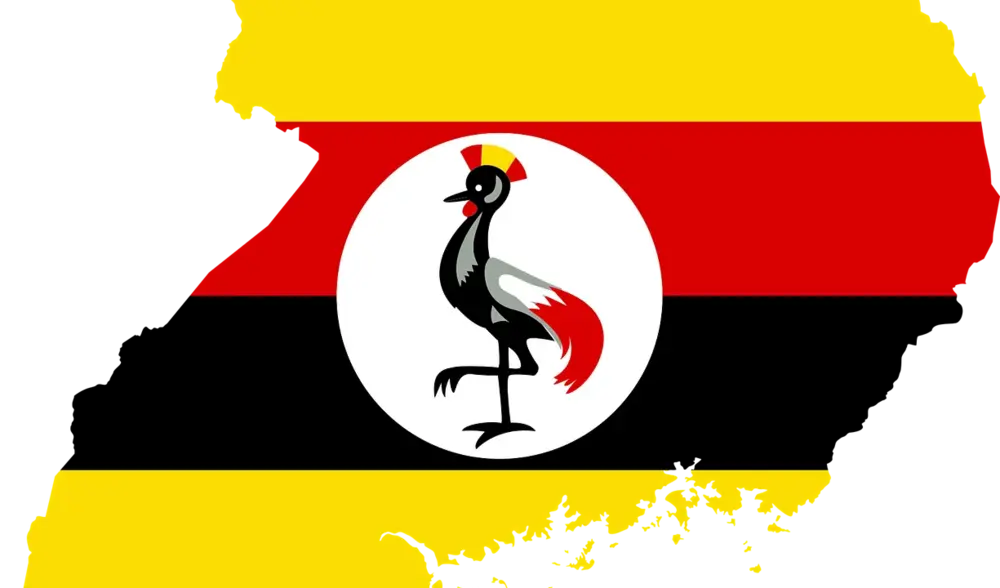A Tale of Two Farms: George Orwell’s Animal Farm and Yoweri Museveni’s Uganda

This text was also published in the Global Community Magazine, an online magazine by students of the MA Global Communication program of the University of Erfurt. You can access it here.
George Orwell’s Animal Farm is a famous satirical fable published in 1945. The Animal Farm captured events that preceded the Russian Revolution of 1917, the Stalinist era, and the aftermath of the Second World War. The story’s plot was anchored on how a group of animals on the Manor Farm conspired against Mr Jones (the farmer) for his harsh treatment. Old Major instigated a revolt against Mr Jones by painting the paradise of an Animal Colony free from the tyranny of human masters. Napoleon, Squealer, and Snowball later advanced the liberation agenda upon the death of Old Major. They conceived seven sacred laws of Animalism based on a maxim: “four legs are good, two legs bad”, to portray four-legged animals as their friends while their two-legged humans as evil. However, elections for the new Animal Farm leader were marred by violence, as Napoleon emerged unopposed after using dogs to intimidate and force Snowball, his rival, into exile. The irony is that Napoleon’s appetite for money, lust for power and control transformed him into a self-appointed totalitarian dictator[1] in the semblance of Mr Jones. The animals’ dream of paradise quickly became a nightmare, as Napoleon violated all the farm’s laws on equality, brutally exploited the animals and subjected them to torture.
George Orwell’s Animal Farm is being replayed in Uganda, where President Yoweri Museveni delivered a masterclass on “how to do it” for aspiring and existing dictators. Museveni’s seized power in 1986 and reconfigured the political system in Uganda from totalitarianism to hyper-totalitarianism. At the onset of his political career, Museveni was critical of his predecessors who failed to voluntarily surrender their tight grip on power — a criticism he is also guilty of, having perpetuated himself in power for over three decades through staged elections. Museveni’s professed desire to leave a legacy of socio-economic transformation[2] in Uganda can be dismissed as delusional. Instead, Museveni’s legacy as a guerrilla warlord, oppressor, seasoned electoral-fraud lord, and dictator is without blemish. The 2001 and 2011 polls were defined by state-sponsored violence as Kizza Besigye, an opposition leader, has been arrested four times, often brutally, for involvement in “walk-to-work” protests over spiralling cost of food and fuel. The UN warned of deteriorating human rights condition in the run-up to the 2021 elections in Uganda[3].
Uganda, as a former British colony, attained independence in 1962. The country’s turbulent political history is marked by incessant coups d'état, military regimes, and tyrants, notably Idi Dada Amin. Events preceding the 14th of January 2021 presidential and parliamentary elections are not new in the Uganda’s electoral history. President Museveni[4], a former warlord, sought to prolong his 35-year rule by contesting his sixth term in office. Political candidates in the presidential race include Robert Kyagulanyi of the National Unity Platform (NUP) party, retired former army commander Maj-Gen Mugisha Muntu of the Alliance for National Transformation (ANT), Patrick Oboi Amuriat for the Forum for Democratic Change (FDC), and Norbert Mao of the Democratic Party (DP). Yoweri Museveni faced stiff competition from Robert Kyagulanyi Sentamu aka Bobi Wine[5], a musician turned politician dubbed the “ghetto president”. Kyagulanyi has been very vocal about the socio-economic and political issues affecting Ugandans. Robert Kyagulanyi Sentamu is new to the national political scene but was previously a member of parliament for Kyandondo East, where he countered a constitutional amendment to extend the age limit for political candidates. Robert Kyagulanyi’s fierce criticism of the incumbent President has earned him popularity among Ugandans and harassment by the government.
Robert Kyagulanyi’s music has been about the injustices and inequality of everyday life in Uganda. The Uganda elites have criticized his decision to actively participate in politics because of his background as a musician and his little knowledge of policymaking. Robert Kyagulanyi (Bobi Wine) has made an unusual transition from the abyss of poverty to being a presidential contender without any affiliation to the existing political order. His slogans of “mwebereremu” (stand up for yourselves, do it for you, open your eyes) reminds the youth that they have the power to change their lives and that of future generations by fulfilling their civic duties. On the other hand, Museveni’s mantra has been to “keep them ignorant, and they shall be ruled easily”. Robert Kyagulanyi has become the favourite candidate to rescue Uganda from a tyrant who has transformed the country into private property. During the recent electoral campaigns, opposition party members were tortured or imprisoned, while more than 30 people lost their lives[6]. The 2021 elections have been a scam as TV images exposed Byabakama, the electoral commissioner, fidgeting on national TV when declaring the election results.
COVID-19 restrictions have been used as an excuse to further suppress political participation and intimidate the opposition candidates before the 2021 elections in Uganda. The Internet has only been partially restored on January 18, 2021, after several days’ national blackout[7] on the eve of elections. The sheer magnitude of controversy that has trailed the elections in Uganda suggests that the old guard has adopted new tactics to reinvent himself as the modern-day version of a Napoleon character in the Animal Farm. Museveni is having a festival of oppression[8] in Uganda and a field day silencing dissent through the blockade of social media, a ban on political campaigns[9] on the mass media and placing Bobi Wine on house arrest after the presidential elections[10] and ignoring a court directive to release him[11]. Museveni has secured a false victory using a fictitious election to justify his prolonged stay in power[12]. It is not new; it is more of elementary tactics in the modern dictatorship playbook. Museveni would like to call it: The Fundamentals of Tyranny 101. One thing is certain: Either by accident or natural contract with death, this Napoleon Ugandans see today, they shall see him no more in the future!
President Museveni has turned state affairs into a family business. For instance, his wife is the Minister of Education; his brother owns half of Uganda’s businesses, while his brother-in-law is the minister of foreign affairs. Many of his comrades from the 1986 guerrilla struggle to seize power have been rotated across juicy positions in the government. The education, health, economic sectors, and other state institutions have collapsed during Museveni’s time in office. Public owned companies, organizations and institutions have been sold by the government to many of Museveni’s family, political allies, and friends, resulting in their decline. Today, Ugandans live in abject poverty and illiteracy is high, despite implementing the Universal Primary Education (UPE) and Universal Secondary Education (USE). A large fraction (85%) of the population are young people below the age of 35, born when Museveni came into power. The president has demonstrated a lack of ideas, vigour and enthusiasm. Many Ugandans are disillusioned by the failures of Museveni’s regime and have identified with Robert Kyagulanyi Sentamu’s refreshing message of hope.
The parliament has been dominated by senile old yes-men and women whose main task is to endorse Museveni’s constant constitutional amendments. Museveni is allergic to an active, vibrant, and resourceful crop of parliamentarians that could challenge his obsolete ideas. The most significant percentage of Uganda’s budget is allocated for security to purchase arms and ammunition to crush legitimate opposition. The citizens have become victims of arbitrary murder in the hands of the Ugandan police and army[13]. There are speculations that President Museveni is grooming his son to assume the presidency when he stands down from office. He appointed his son as his national security advisor with a prominent position in the army, ignoring other senior army officers best suited for the position. His son Major general Muhoozi Kalyerugaba is also the Head of the SFC, a special army unit implicated in the mysterious deaths, unlawful detention, and murder of innocent people in underground torture dungeons. Nepotism and corruption have swelled to unprecedented levels in the history of the country. In the end, the lessons in the Animal Farm ring true even today: all dictators are equal, but Museveni is more equal than others! Let the readers be warned: it is a long road to destination freedom, and Uganda could go on a slope down the cliff. Uganda is bleeding, the African Union (AU) is silent, and the world is sleeping. Today, the African college of dictatorship boasts a list of infamous students demonstrating impressive performances. Yoweri Museveni of Uganda, Denis Sassou-Nguesso of Congo, Idriss Déby of Chad, and Paul Biya of Cameroun all compete in a marathon race for the title of the most oppressive president. Museveni, just like Napoleon, is not a gifted speaker but skillful in the art of imposing his will and less tolerant for opposing views. Museveni towers above his peers, even above Napoleon, the tyrannical character in George Orwell’s Animal Farm. It’s rigging as usual, and the winner is…Yoweri Museveni!
[1] Sandner, P. (2021, January 13). Uganda's Yoweri Museveni: From reformer to autocrat. Deutsche Welle. https://p.dw.com/p/3nqRs
[2] BBC UK. (2011, January 25). Uganda's President Museveni explains why he wants another term. https://www.bbc.co.uk/worldservice/africa/2011/01/110125_uganda_museveni.shtml
[3] UN News. (2021, January 8). Uganda: ‘Deteriorating’ human rights situation in run-up to elections next week. https://news.un.org/en/story/2021/01/1081662
[4] BBC News. (2016, February 17). Yoweri Museveni - Uganda's president profiled. https://www.bbc.com/news/world-africa-12421747
[5] Pilling, D. and Schipani, A. (2021, January 15). Bobi Wine, a tenacious challenger set on power in Uganda. Financial Times. https://www.ft.com/content/115662c1-c47d-45c7-8756-f7e7b0df77ae
[6] Athumani, H. and Wroughton, L. (2020, November 5). 37 dead in Uganda protests after arrest of presidential candidate Bobi Wine. The Washington Post. https://www.washingtonpost.com/world/africa/uganda-protests-bobi-wine/2020/11/20/efe106ec-2aa6-11eb-9c21-3cc501d0981f_story.html
[7] Hayden, S. (2021, January 13). Uganda blocks internet access ahead of landmark election. The Irish Times. https://www.irishtimes.com/news/world/africa/uganda-blocks-internet-access-ahead-of-landmark-election-1.4457582
[8] Human Rights Watch. (2020). World Report 2020: Uganda, events of 2019. https://www.hrw.org/world-report/2020/country-chapters/uganda#
[9] Ssenoga, G. (2020, September 6). Why Uganda’s ban on open-air campaigns could tilt the 2021 poll in Museveni’s favour. The Conversation. https://theconversation.com/why-ugandas-ban-on-open-air-campaigns-could-tilt-the-2021-poll-in-musevenis-favour-144814
[10] AlJazeera. (2021, January 15). ‘Under siege’: Uganda’s Bobi Wine says military raids home. https://www.aljazeera.com/news/2021/1/15/uganda-opposition-leader-bobi-wine-says-military-enters-home
[11] The EastAfrican. (2021, January 26). Soldiers remain at Bobi Wine’s home despite court order. https://www.theeastafrican.co.ke/tea/news/east-africa/soldiers-remain-at-bobi-wine-s-home-despite-court-order-3269086
[12] AlJazeera. (2021, January 16). Museveni declared winner of disputed Uganda presidential election. https://www.aljazeera.com/news/2021/1/16/ugandas-museveni-declared-winner-of-presidential-election
[13] Amnesty International. (2020, December 14). Uganda: Stop killings and human rights violations ahead of election day. https://www.amnesty.org/en/latest/news/2020/12/uganda-stop-killings-and-human-rights-violations-ahead-of-election-day/

About the authors
Agatha Cherop Blankenburg is a Ugandan currently pursuing a MPP degree at the Willy Brandt School, University of Erfurt. She likes to articulate her views on injustices against children, women, minority groups, and other socio-economic issues.
Mufutau Muyiwa is the Editor-in-Chief of the Global Community Magazine. He is a Fast Track PhD student within the framework of the MA GlobCo program — under the supervision of Prof. Dr. Kai Hafez — at the University of Erfurt.
~ The views represented in this blog post do not necessarily represent those of the Brandt School. ~